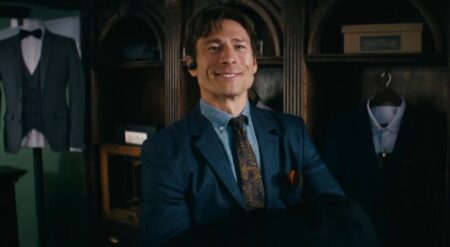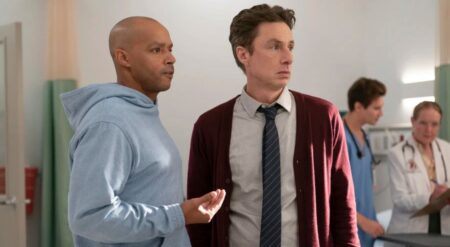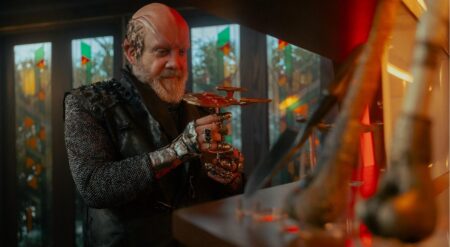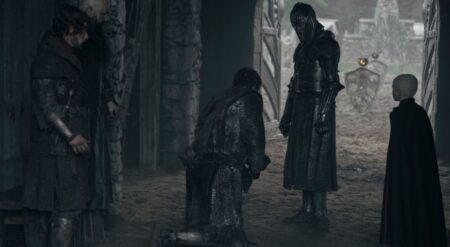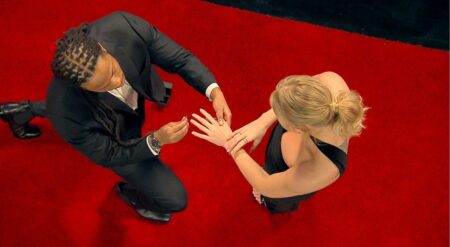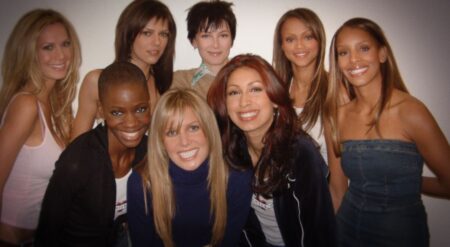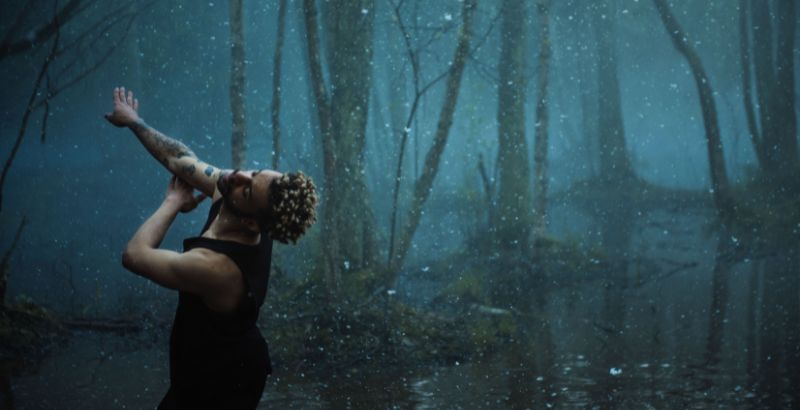
Dance Brothers is an inherently silly show. The premise, which follows two brothers who’ve struggled to make it into the dance world as they gain fame after starting their own club, should have leaned into that glib, fantastical nature. Instead, it takes a gritty, off-puttingly gray approach to the storytelling, taking its story much more seriously than necessary. The series would’ve benefitted from either cutting the dance element or the indulgent level of drama. It could have been an explosive story about dancers or an introspective story about two brothers trying to stay close while following their own ambitions. Instead, the result is an ineffective story that has all the pieces of strong filmmaking with faulty execution.
The good news is that these episodes are short, many only running around 20 minutes. Roni (Roderick Kabanga) and Sakari (Samuel Kujala), the two brothers, are close and have most often worked and performed as a creative unit. They fail to register for a major audition but take the stage anyway, with Sakari being the only one included in the callback. He pretends otherwise to Roni, and as they’re looking to launch their careers while being threatened to be kicked out of their home by their mother, they get wrapped up in a violent encounter which leads them to their benefactor. They have the resources, the skills, and now the room to open their own club, and they’re ready to take it.
As their artistry and personal relationships begin to clash over the season as they deal with the demands of running their own club, Dance Brothers remain at its best in flights of fancy. Despite a narrative that prefers drama to levity, the production maintains a level of whimsy that helps elevate it. The cinematography resembles a range of television and film, from the Norwegian series Skam to Andrea Arnold’s American Honey. Both distill the coming-of-age experience into their visual language, and cinematographer Arsen Sarkisiants captures a similar, electric energy, framing magic hour and the elements of their world with a graceful eye. The elements are handled better than the dancing itself, with choreography being hidden and cropped out of view.
Elsewise, the series shines in its score by composers Elja Markkanen and Elias Salmenkallio. The dreamy music is filtered through the series, most effective in the moments of dusk or serene moments of contemplation, with similarities to the softer moments of the Stranger Things score.
Kabanga and Kujala are both strong enough performers, selling what’s needed even if their camaraderie never truly shines as great as we’d expect considering how strong their bond supposedly is. The performances work best in the easy back and forth but suffer when asked to do too much heavy lifting. The show becomes buried in side plots involving addiction and anxiety that are tacked on rather than explored as crucial elements of these characters. The 20-minute runtime is both a blessing and a curse, as the show overstays its welcome but quickly becomes burdened by all that the writers are insisting on including.
The most glaring failure of the series stems from its name. For a show called Dance Brothers, there is shocking little dancing — especially dancing that comes in full, completed sequences. After being asked to perform, the script jumps to right after their audition. This would make sense, to a degree, if the series was waiting until a last, explosive performance, to showcase all that the two can manage withholding for the sake of greater impact. And, to their credit, there’s certainly more dancing in the final two episodes as things press up against the wire. But it’s not worth the wait. It’s Always Sunny in Philadelphia, a show very much not about dance, has had an episode with more emotionally potent choreography.
In stories about and submerged in art, it’s crucial that the writers and directors capture the euphoria that pours over us as we partake in or bear witness to that brand of passion. Dance in particular is such a grueling sport that produces timeless statements of beauty and impact. Dance Brothers fails because it never concerns itself with honoring that craft.
Dance Brothers is streaming now on Netflix.
Dance Brothers
-
Rating - 5/105/10
TL;DR
In stories about and submerged in art, it’s crucial that the writers and directors capture the euphoria that pours over us as we partake in or bear witness to that brand of passion. Dance in particular is such a grueling sport that produces timeless statements of beauty and impact. Dance Brothers fails because it never concerns itself with honoring that craft.

